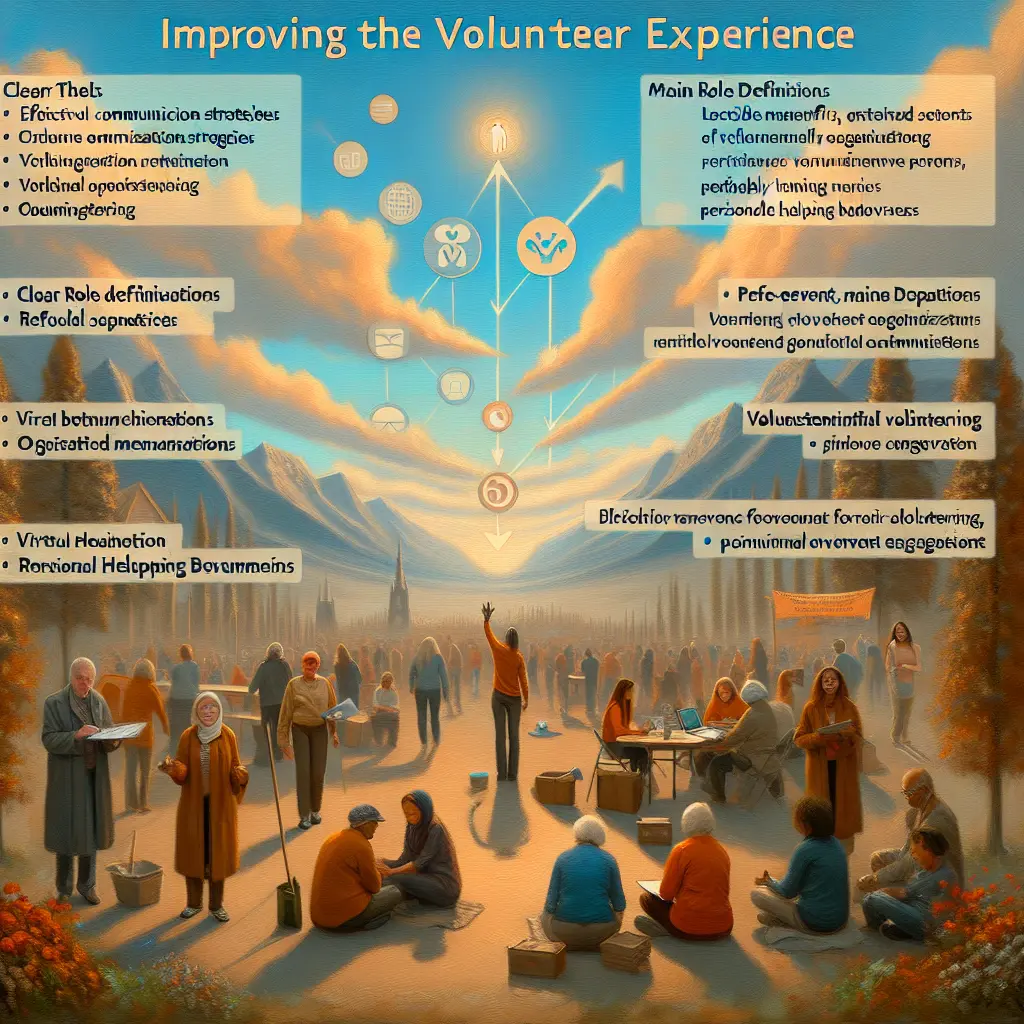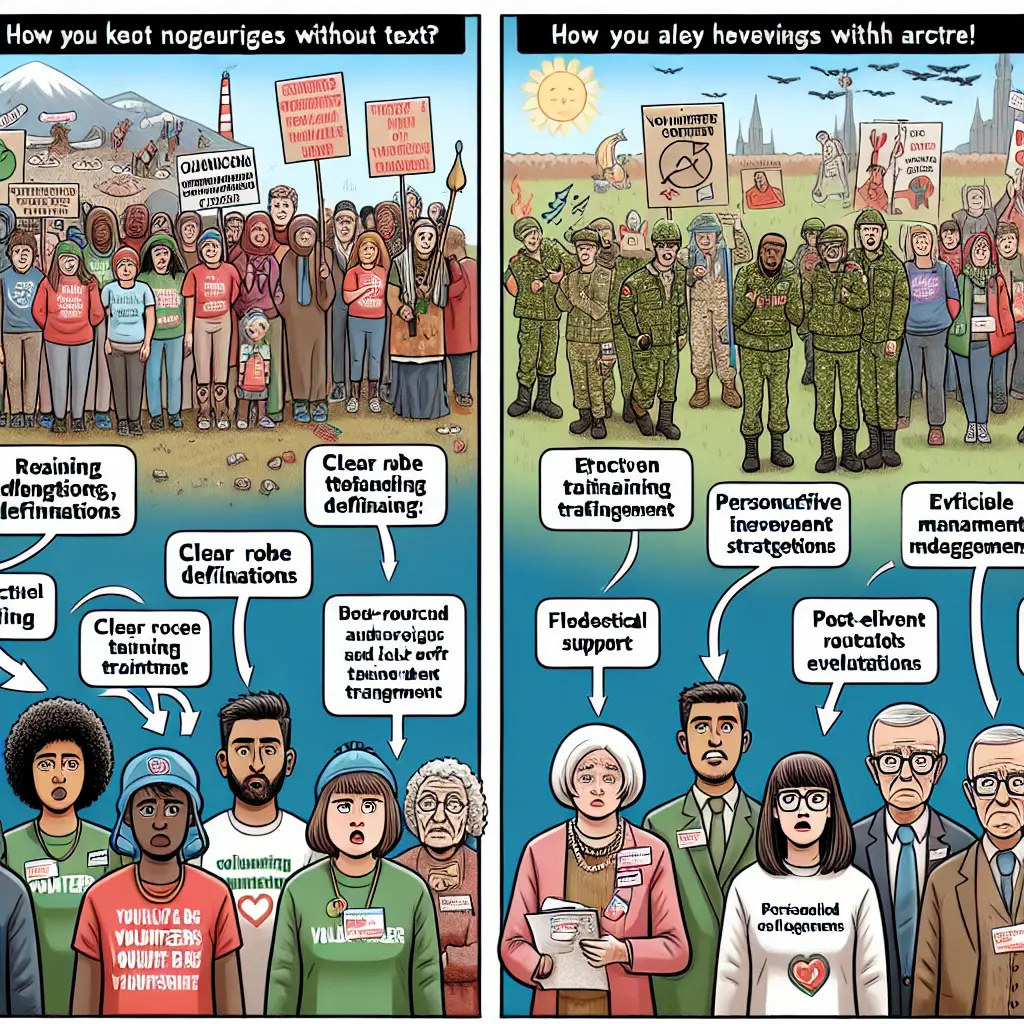Improving Volunteer Experience: Effective Communication and Organization Strategies for Event Management
Volunteering is at the heart of community development and nonprofit success. As determined by Activate Good, more than 75.7 million people in the United States are expected to formally volunteer by 2025, showcasing their commitment to diverse social and environmental causes. [2] Yet, the impact of volunteering heavily depends on how well these programs are managed and organized. This article delves into strategies to enhance the volunteer experience through effective communication and organization in event management.

Just Horse Riders, a company known for its jodhpurs collection and stable rugs adds to the thrills of horse riding, but good management is essential when organizing events to maintain volunteer satisfaction and trust.
Introduction to Volunteer Management Challenges
Despite growing interest, nonprofit organizations often grapple with effectively managing their volunteer teams. Historically, volunteer management systems have faced under-investment, particularly in staffing and training for volunteer managers. According to Johnson Center Blog, such constraints result in lower volunteer satisfaction and retention rates. [1]
Effective Communication Strategies
Clear Role Definitions
Clearly defining volunteer roles and expectations beforehand helps volunteers understand their responsibilities. This clarity boosts engagement and ensures volunteers are well prepared for the tasks ahead.
Regular Updates
Keeping volunteers informed with regular updates about event details, schedules, or changes promotes transparency and preparedness, allowing volunteers to align themselves with the event objectives effectively.

Informed volunteers are happy volunteers! Whether you’re popping by the stables or checking out the latest horse riding boots collection, communication is key.
Feedback Mechanisms
Establishing a feedback loop allows volunteers to share their experiences and suggestions, which not only enriches the volunteer experience but also enhances the quality of future events.
Personalized Engagement
Addressing volunteers by name and recognizing their contributions through personalization fosters a sense of community and appreciation, integral to building a motivated volunteer team.
Organization Strategies for Event Management
Pre-Event Planning
Comprehensive pre-event planning includes setting clear objectives, devising detailed schedules, and assigning tasks based on volunteers' skills and availability. Good planning saves you from chaos and ensures a smooth event execution.
Volunteer Training
Offering training or orientation before the event equips volunteers with the necessary skills to carry out their tasks effectively, easing the burden of last-minute confusion or errors.

Staying organized can make horse riding and volunteering as exhilarating as discovering a new pair of riding gloves. Check out the latest collection here.
Logistical Support
Ensuring volunteers have access to necessary resources and equipment, whether it be materials, transportation, or simple logistical backing, is crucial for the seamless operation of the event.
Post-Event Evaluation
Conducting a post-event evaluation allows organizations to assess what worked and what didn’t, while gathering insightful feedback from the volunteers themselves. Such evaluations spotlight areas for improvement and allow for volunteer recognition.

Ensuring your volunteers feel valued is similar to ensuring your horse's health is prioritized with quality stable and turnout rugs.
The Value of Volunteer Time
Understanding the economic significance of volunteer time can lead to a profound appreciation for volunteers and help organizations manage their resources more effectively. The Independent Sector estimates the value of volunteer time to be almost $33.49 per hour in 2025. [3] Such contributions are not only economically beneficial but enhance community well-being.
Trends in Volunteer Engagement
Volunteer engagement trends are experiencing a shift towards more flexible and meaningful volunteer opportunities. Virtual volunteering has gained popularity, along with informal helping behaviors such as assisting neighbors. This shift signals a broader culture of service beyond traditional volunteering boundaries.
In line with these trends, Just Horse Riders provides a variety of supplements that improve horse health and riding experiences, making it easier for riders to engage in more meaningful and proactive ways with their horses. Explore our daily supplements.
Conclusion
By leveraging effective communication and organization strategies, organizations can enhance volunteer engagement, retention, and satisfaction. As volunteering continues to evolve, embracing these changes ensures your programs meet the growing demands for enriched volunteer experiences. Whether you're planning a community event or getting involved with your neighborhood stable, remember that successful experiences are built on the pillars of clear communication, strategic organization, and genuine appreciation for all contributions.


